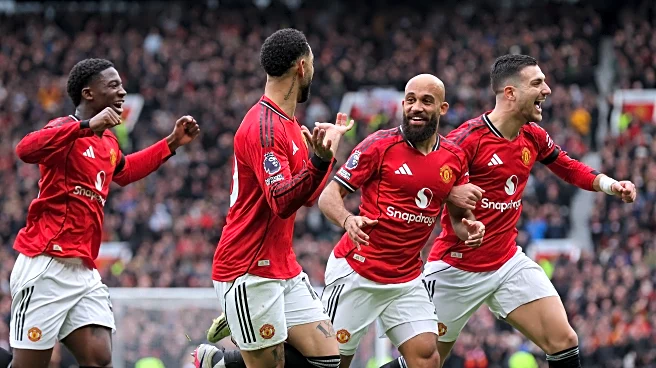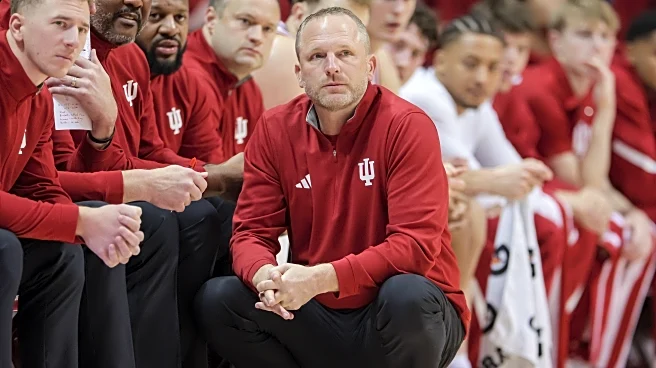What is the story about?
What's Happening?
Colorado head coach Deion Sanders has announced his intention to coach the upcoming game against No. 22 Iowa State, despite undergoing surgery for blood clots in his leg. During his weekly coaches show, Sanders expressed that he is experiencing soreness but feels well enough to lead his team. The Hall of Fame cornerback had previously removed his shoe during a game against TCU, indicating potential circulatory issues. Sanders revealed that he has a hereditary condition affecting his circulation, which has led to the removal of two toes from his left foot. Despite these challenges, Sanders remains committed to his coaching duties.
Why It's Important?
Deion Sanders' decision to coach despite his health issues highlights his dedication to his team and the sport. His presence on the sidelines is significant for Colorado, as they face a challenging opponent in Iowa State. Sanders' health struggles also bring attention to the broader issue of hereditary medical conditions and their impact on professional responsibilities. His situation may inspire discussions on the balance between health and career commitments, particularly in high-pressure environments like college football.
What's Next?
Sanders is scheduled for a follow-up doctor's appointment to address his circulatory issues further. His ability to continue coaching will depend on his recovery and medical advice. The upcoming game against Iowa State will test Colorado's performance under Sanders' leadership, and his health will be closely monitored by fans and the media. The outcome of the game could influence Sanders' future decisions regarding his coaching role and health management.
Beyond the Headlines
Sanders' health challenges underscore the importance of medical awareness and preventive care in sports. His openness about his condition may encourage other athletes to prioritize their health and seek medical advice when needed. Additionally, Sanders' situation could lead to increased support for research into hereditary circulatory conditions and their treatment.
















